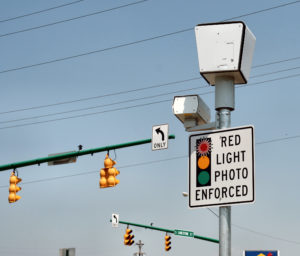The Third Circuit Court of Appeals recently decided that the Federal Railroad Safety Act does not automatically preempt all state common law claims. Specifically, the Court said that the federal regulation would not prevent a claim being brought against CSX by a Pennsylvania mall damaged by floodwater. The mall never sought damages, instead only requesting an injunction that would force CSX to fix the drainage problems caused by their train tracks.
The incident began when the MacDade Mall was flooded as a result of storm water runoff from a nearby CSX train track. The owner of the mall filed suit against CSX, claiming that the railroad’s negligence led to the flooding problem. A lower court rejected the mall operator’s argument, ruling that the Federal Railroad Safety Act (FRSA) preempted the claim and ultimately tossed the case out of court. The mall operator appealed the decision and a divided panel of the Third Circuit disagreed with the district court, sending the case, MD Mall Associates v. CSX Transportation, back to the lower court for further review.
The Third Circuit’s majority decided that because no section of FRSA expressly speaks to the issue of storm water runoff, the presumption is that existing state laws concerning such matters must survive. The Court found that CSX’s position was unreasonable, saying that if you followed their automatic preemption logic to its extreme it would mean that CSX would be allowed to intentionally pour storm water onto any neighboring property it chooses, without ever being held liable for its actions.
The Court made clear that its ruling does not mean that FRSA will be gutted. On the contrary, the majority wrote that when a FRSA provision clearly subsumes a plaintiff’s state-law claims, then FRSA will apply and the suit will be preempted. In this case, no such provision in FRSA spoke to the issue of water drainage, which means the mall’s claims were allowed to proceed.
The case offers hope for others who have been harmed by the actions of major railroad operators such as CSX, Amtrak, Union Pacific and Norfolk Southern. The Third Circuit made clear in its ruling that FRSA could not be used by railroad companies as a blanket attempt to toss state-law claims for damages out of court. This ensures that injured plaintiffs have a way of holding railroad companies like CSX responsible for their negligent and harmful actions.
About the Editors: The Virginia and Carolina injury law firm of Shapiro, Lewis, Appleton & Favaloro provides legal articles on health & safety as a pro bono service. We also blog on railroad & FELA worker injury claims









One Comment
rob pines
Next they should order all the railroad safety people to be tied to the front of the train battering rams in their "THIS IS SAFE" t-shirts.
100 million vehicle miles traveled in 2010. (1 fatality per 90,909,091
miles traveled)
January TO October, 2012
CSX- Total fatalities: 104
Total nonfatal conditions: 460
Killed crossings-33
Killed Pedestrians-69
Killed workers-2
Injured crossings-141
Injured pedestrians-77
Injured workers-214
Total train miles: 99,561,556
1 killed per 972,213 miles traveled
In 100 million miles CSX kills 104 people not 1.1 people.
Comments for this article are closed.